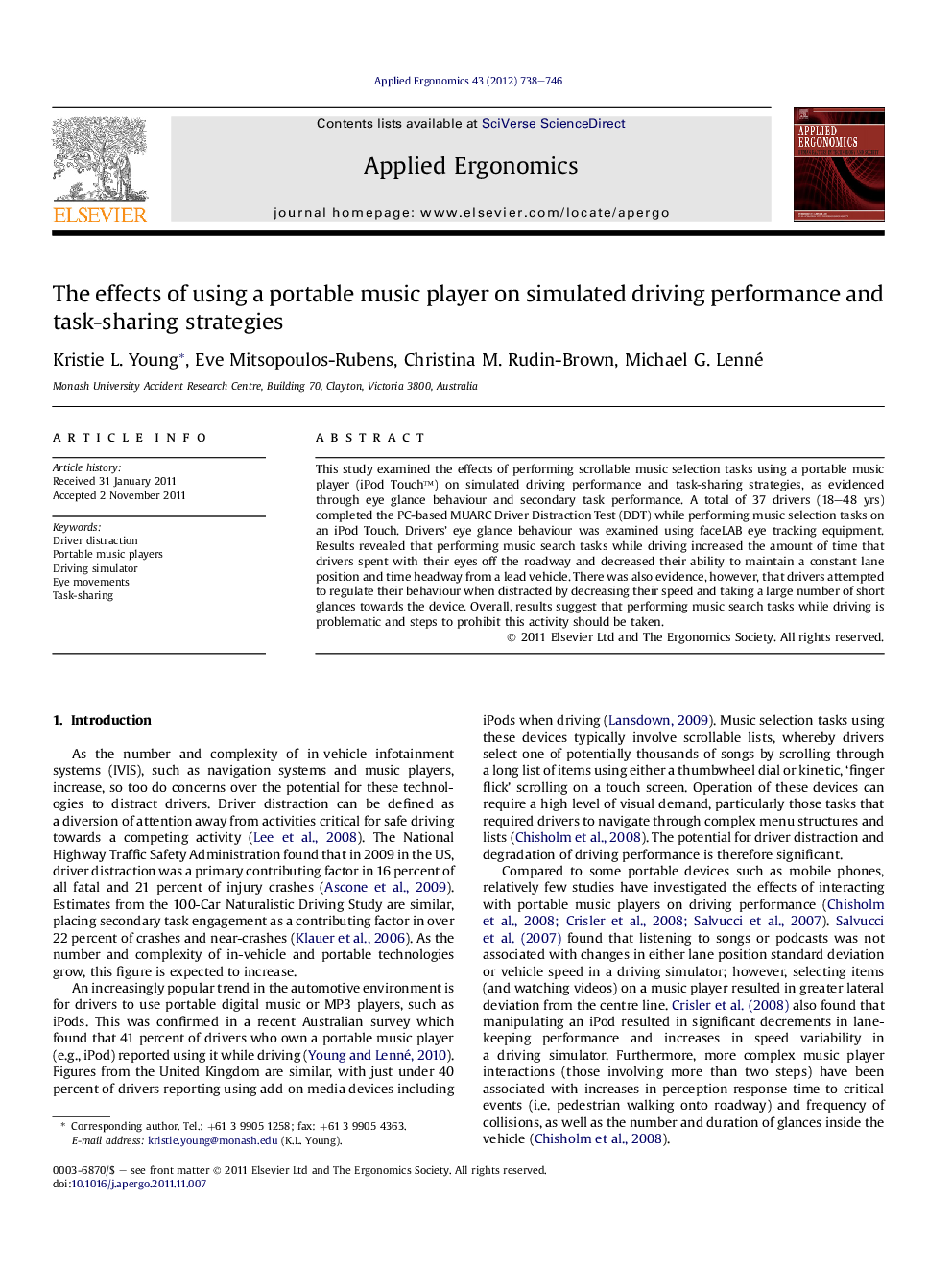| Article ID | Journal | Published Year | Pages | File Type |
|---|---|---|---|---|
| 549427 | Applied Ergonomics | 2012 | 9 Pages |
This study examined the effects of performing scrollable music selection tasks using a portable music player (iPod Touch™) on simulated driving performance and task-sharing strategies, as evidenced through eye glance behaviour and secondary task performance. A total of 37 drivers (18–48 yrs) completed the PC-based MUARC Driver Distraction Test (DDT) while performing music selection tasks on an iPod Touch. Drivers’ eye glance behaviour was examined using faceLAB eye tracking equipment. Results revealed that performing music search tasks while driving increased the amount of time that drivers spent with their eyes off the roadway and decreased their ability to maintain a constant lane position and time headway from a lead vehicle. There was also evidence, however, that drivers attempted to regulate their behaviour when distracted by decreasing their speed and taking a large number of short glances towards the device. Overall, results suggest that performing music search tasks while driving is problematic and steps to prohibit this activity should be taken.
► Portable music players with touch screen interfaces are increasingly popular with drivers. ► We examined the effects of scrollable music search tasks on driving performance. ► The music tasks increased the amount of time drivers spent with their eyes off the road. ► The tasks also lead to degraded lateral and longitudinal control. ► However, drivers regulated their interaction by taking a large number of short glances to the device.
